River Wye: Pollution not caused by farming, says NFU
- Published
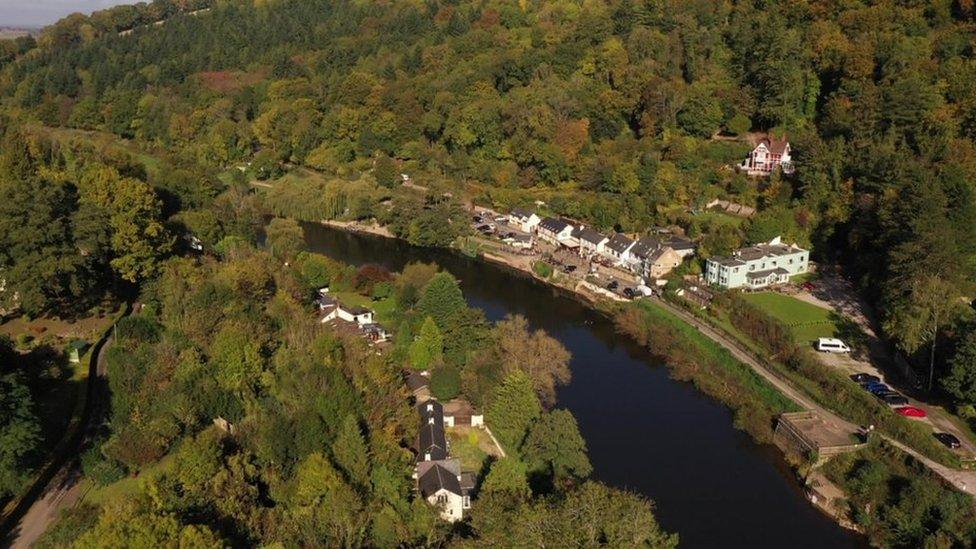
The health of the river has been updated to "unfavourable declining" because of a deterioration in key wildlife
Farming leaders say they are being unfairly blamed after the River Wye's status was downgraded to unfavourable and declining.
The Welsh government has responded by putting a hold on all new chicken farm developments in mid Wales.
NFU Cymru has described the move as a "knee-jerk reaction" which does not have a scientific basis.
UK government body Natural England downgraded the river's status from unfavourable and improving in May.
In its own assessment, Natural Resources Wales also raised concerns about pollution from poultry farming.
About 24 million chickens, a quarter of UK poultry production, are raised in the river's catchment area, which covers both sides of the border between Wales and England.
Some farmers use the resulting chicken manure as a fertilizer to feed the soil and grow crops on their land.
However a study by Lancaster University suggests up to 70% of the phosphate load in the River Wye originates from agriculture.
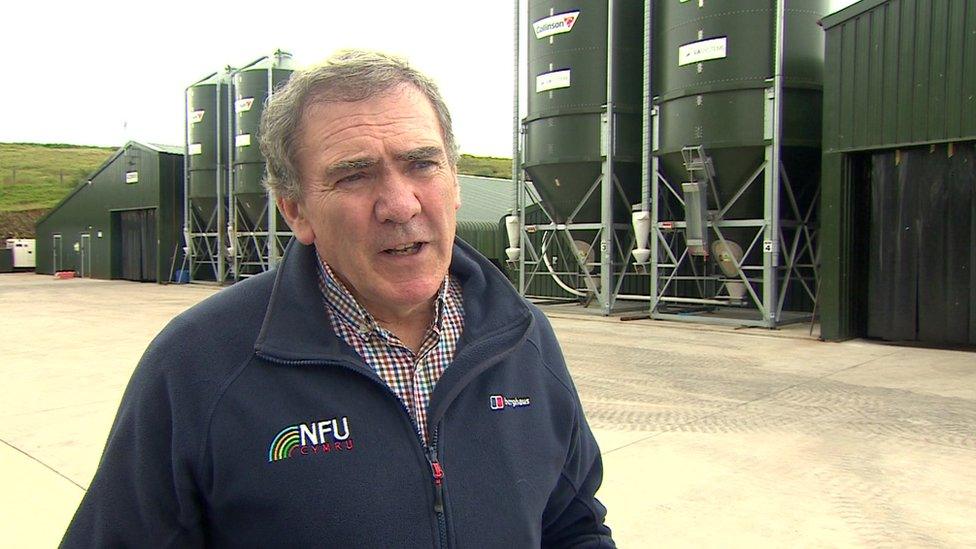
NFU Cymru has said the Welsh government has to look at the science before putting a hold on poultry farms
Aled Jones, president of NFU Cymru, said stopping production "is not the method for addressing these issues", but said he understands the need to improve the Wye's water quality.
"I have a huge respect for maintaining the water quality but I can't get away from the legacy impact of things undertaken 50 years ago. We've got to address the methods of production."
NFU Cymru say that modern farming techniques are not harming the river.
"Farmers are making very good use of the nutrients and demonstrating they are harnessing science and maintaining food availability," Mr Jones said.
'Close to collapse'
Angela Jones, known as the "Wild Woman of the Wye", has been swimming in the river for decades.
She first noticed the changes six years ago and said immediate action was needed to prevent ecological collapse.
"The stones on the river bed started to go brown and it really did start to get foul," she said.
"Its totally changed the whole ecosystem. The wildlife, everything that is this river has changed, and you can't imagine the beauty that was there and what we've lost."
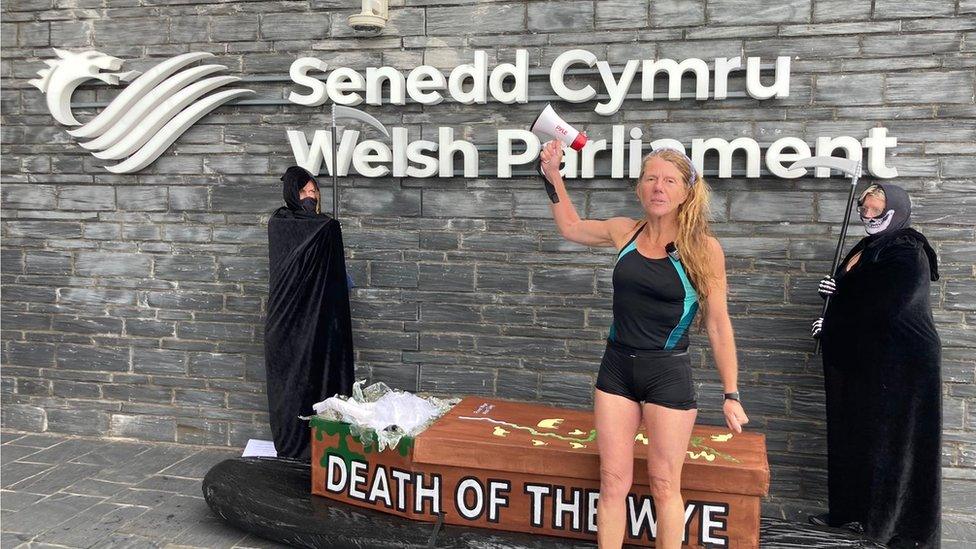
Angela Jones took her protest to the Senedd in Cardiff in 2021
Rob Powell's family has been running Blaenbwch Farm in Powys since 1962. He said the chicken manure helps the growth rate of their crops and if used properly could be "a benefit and not a hazard" to the river.
"We're not allowed to spread in the winter now so we have a storage silo pit. Its improved our soil, increased our worm count on the ground and upped our organic matter in the soil. I think its got a big place to make farming profitable," he said.
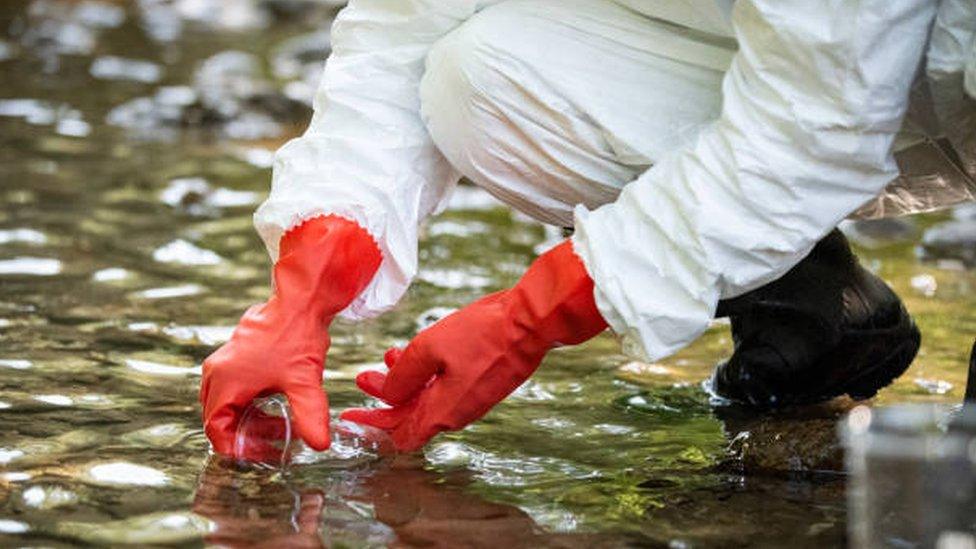
Rural land use is responsible for 72% of phosphorus entering the Wye, according to Welsh Water
In a statement Natural Resources Wales acknowledged significant challenges remained.
It said the organisation was working within the resources and legal powers they had to tackle pollution.
The Welsh Government said it is concerned about the health of our rivers including the impact from chicken farms but could not comment on the effects of individual planning applications.

YR WYDDFA: Life on Britain's busiest mountain
WALESCAST: In-depth analysis of Welsh politics

- Published26 May 2023
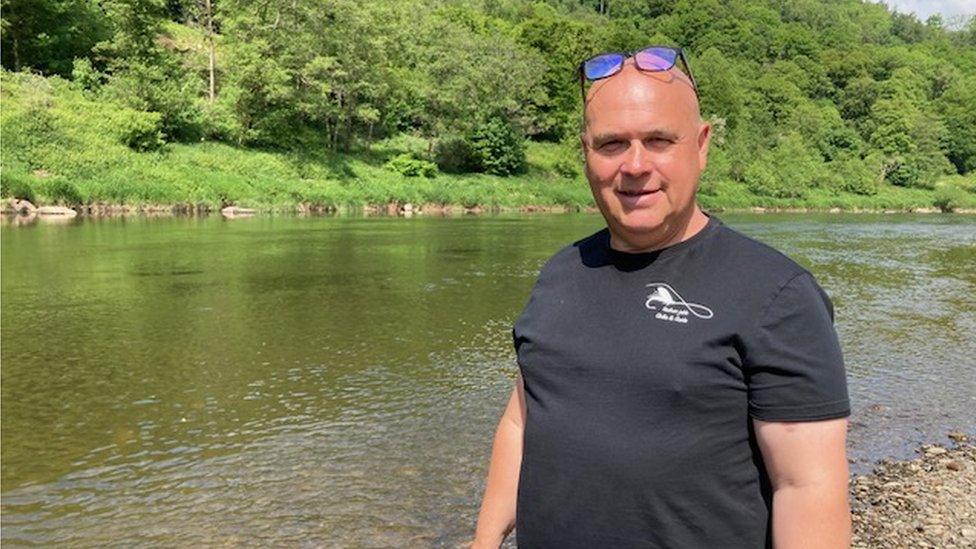
- Published14 March 2023
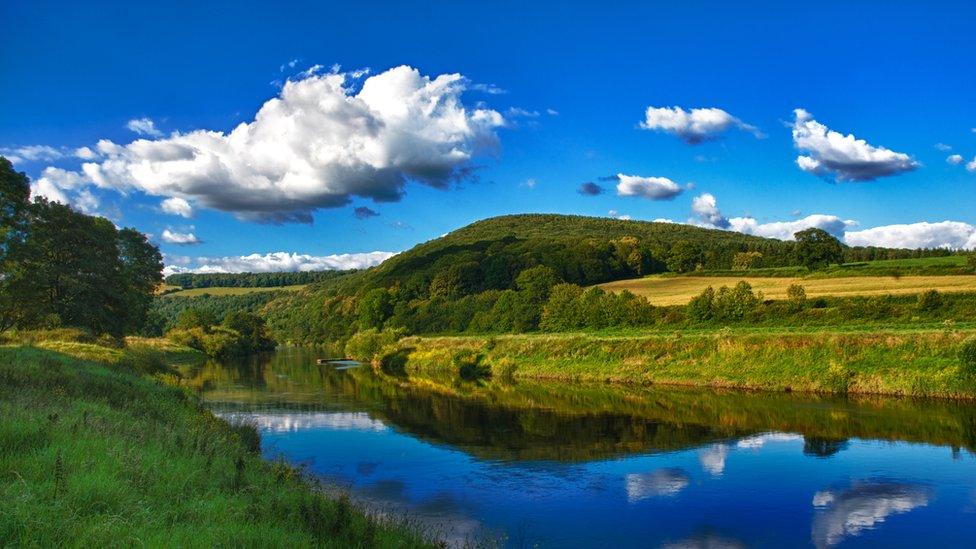
- Published20 March 2022
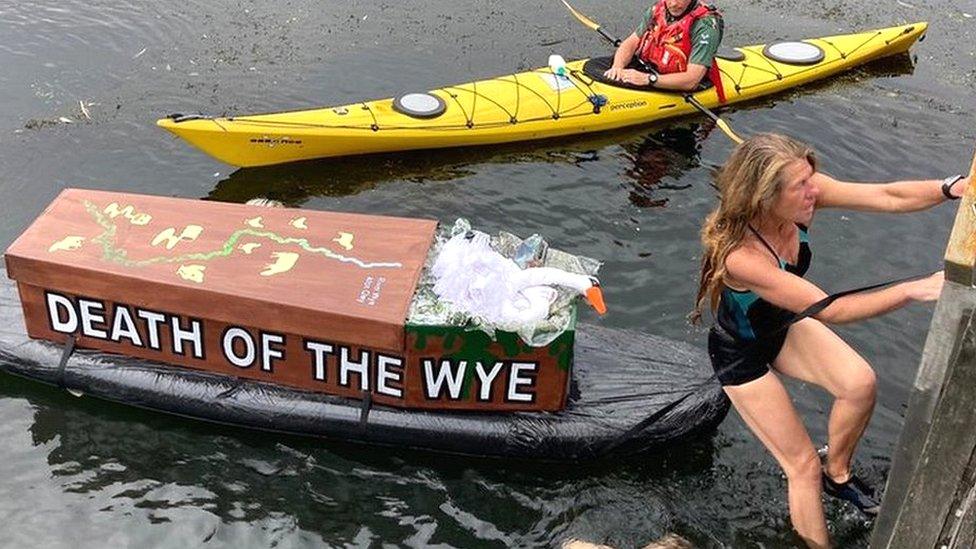
- Published13 January 2022
